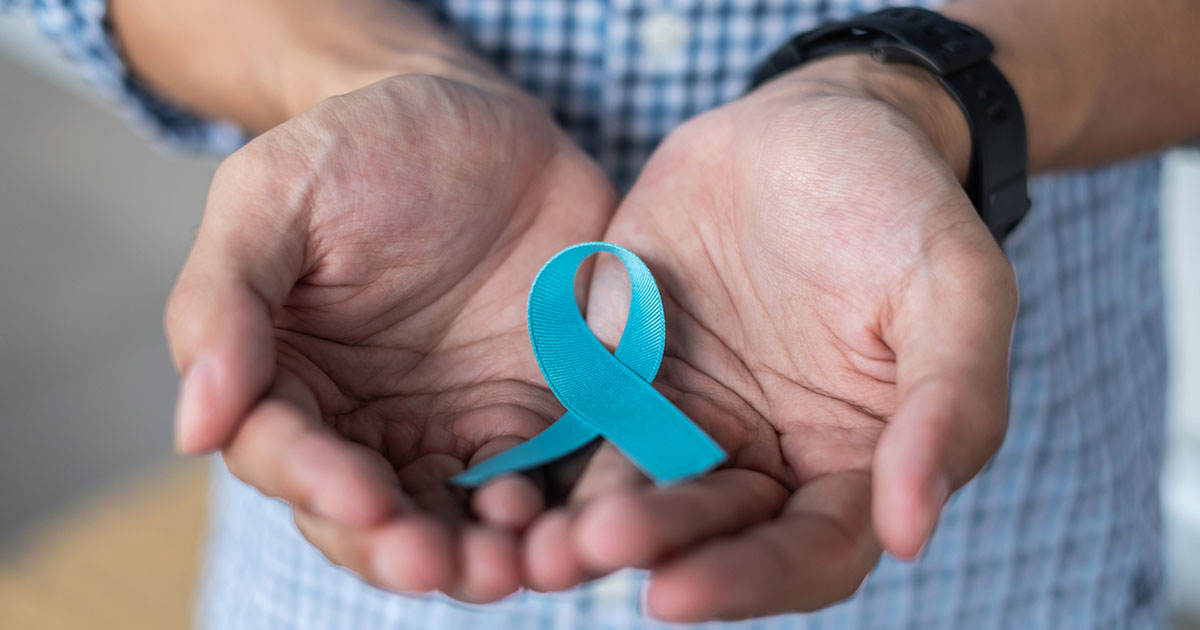
September marks Prostate Cancer Awareness Month. The subject isn’t something that’s always out in the open, however, prostate cancer is nothing to feel uncomfortable talking about. The issue is all too real for those who’ve been diagnosed, and loved ones know how this cancer can affect the entire family.
1 in 9 men will get prostate cancer at some point in their lives, with African Americans being diagnosed far more often—76% more than their Caucasian counterparts. It’s a staggering statistic, and hopefully, Prostate Cancer Awareness Month can help bring these numbers down via early testing, healthy lifestyle changes, and other measures to battle this form of cancer.
Prostate is the most common type of male cancer, but the death rate is relatively low—1 of 41 dies. Treatment proves remarkably effective, particularly when the cancer is caught early on. That’s why checkups are so crucial, so make that appointment ASAP! Please speak with your vybe provider if you have concerns about prostate cancer.
For those who didn’t pay much attention during health class in middle school, a quick refresher of the male anatomy is long overdue. Even if you’ve heard of the prostate, it may still be somewhat of a mystery.
In a nutshell, the prostate is a “walnut-sized” gland positioned between the penis and the bladder, in front of the rectum. Its function is to protect and nourish the sperm with its fluid which is secreted into the urethra.
Many men are wary about seeing their doctor to examine this delicate area. It may seem embarrassing or they’re worried about pain or discomfort. These feelings are understandable but unnecessary. Prostate exams aren’t nearly as bad as they’re anticipated to be, and the process is swift and successful.
In general, the exam is performed digitally, where the doctor will use their gloved finger to feel inside the rectum for any lumps or bumps on the prostate. If anything is concerning or there is pain felt by the patient, a blood test may be administered to check for PSA—prostate-specific antigen. Ultrasounds and biopsies may be recommended in some cases, depending upon the patient’s symptoms, age, family cancer history, and so on.
Experts recommend that men should begin testing at age 50, on average, but those at a higher risk, such as African Americans and those who have a family history of prostate cancer should be tested earlier, starting at age 40 or 45.
Since the prostate is near the bladder and urethra, urinary issues can be signs of prostate cancer. While the first stages of prostate cancer may not have symptoms, signs of progressed prostate cancer include loss of bladder control, burning or pain during urination, and trouble starting or stopping during urination with a decreased flow of a stream.
Other potential symptoms include:
Depending upon the stage/severity of a prostate cancer diagnosis, there may be different approaches taken to treat and cure. These range from prostate removal (prostatectomy) to radiation to chemotherapy. Hormone therapy as well as cryotherapy (freezing the cancer cells) are also effective. There are medications available as a sole treatment or used in conjunction with other forms of treatment too. Your provider will determine the right course of treatment for you.
Prostate cancer is such an important men’s health issue. Bringing Prostate Cancer Awareness Month to the forefront can potentially treat thousands of men who may never have been screened otherwise.
Share this information with the important men in your life who can benefit from early testing. It can save their lives. The first stages of prostate cancer may show no symptoms, so being proactive is a plus.
Our urgent care centers are open 7 days a week with extended hours. We offer general physical exams and are happy to discuss prostate cancer screening with you including the use of prostate-specific antigen (PSA) lab testing.
FIND YOUR VYBE